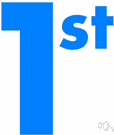Is a Career in Computer Software Programming and Data Processing Worth Pursuing in 2025?
Introduction: The Evolving Landscape of Software Programming and Data Processing
Choosing a career in computer software programming and data processing remains a compelling option in 2025. As technology continues to reshape every industry, the demand for professionals who can design, develop, and maintain software and process data efficiently is robust. However, the field is not without its challenges. Economic cycles, rapid shifts in technology, and the growing influence of artificial intelligence (AI) are changing the nature of available jobs and the skills required. This article explores the current career outlook, the benefits and challenges, and practical guidance for those considering or advancing in this path.
Career Outlook: Growth, Demand, and Stability
The job market for software developers and data processing specialists is expected to grow significantly over the next decade. The U.S. Bureau of Labor Statistics projects a 17% growth in software development roles from 2023 to 2033 , adding approximately 327,900 new jobs. This rate is much faster than the average for all occupations, reflecting the sustained need for technical skills across sectors [1] [2] [3] .
While the hiring boom of 2021-2022 has cooled, opportunities remain abundant, especially for those with experience in AI, infrastructure, and cloud computing. The market is shifting toward candidates who can demonstrate deep technical expertise, adaptability, and the ability to work on complex, scalable systems [1] .
Benefits of a Career in Software Programming and Data Processing
High Earning Potential : Software engineering and data processing roles offer some of the most competitive salaries in the job market. Sectors such as software publishing, finance, and healthcare technology are particularly lucrative, reflecting the critical role these professionals play in digital transformation [3] .

Source: goroboted.com
Job Flexibility and Work-Life Balance : Many tech jobs offer remote work options, flexible hours, and a results-oriented work culture. This flexibility is attractive to people seeking a healthy balance between personal and professional commitments [3] .
Opportunities for Innovation and Growth : Technologies like AI, machine learning, and big data analytics are rapidly advancing. Professionals who build expertise in these areas can drive innovation and take on leadership roles in shaping the future of technology [1] .
Challenges in the Current Job Market
Increased Competition : As the field matures, companies are becoming more selective, often favoring experienced developers and those who can demonstrate specialized skills. This means new entrants may face a steeper learning curve and need to differentiate themselves through relevant projects and certifications [1] .
Shifting Employer Expectations : The rise of AI and automation is transforming the nature of many programming and data processing roles. While automation can reduce the need for repetitive tasks, it also increases the demand for professionals who can architect, integrate, and maintain complex systems. Those who focus on foundational skills such as algorithmic thinking, system design, and security awareness will remain in demand [2] .
Industry Cycles : The job market for programmers has seen fluctuations, with certain periods of rapid growth followed by slowdowns or layoffs. However, the long-term outlook remains positive, especially for those who are adaptable and willing to pivot to new technologies or industries as needed [4] .
Skills and Qualifications: What Employers Want
To stand out, aspiring professionals should develop a strong foundation in:
- Programming languages (such as Python, Java, C++).
- Algorithmic thinking and system design.
- Data structures and database management.
- Security principles and best practices.
- Cloud technologies and distributed systems.
- Communication and teamwork skills.
Specialization in high-demand areas like AI, machine learning, and data analytics is increasingly valuable. Employers also appreciate candidates who show initiative through personal projects, open-source contributions, or relevant certifications from recognized organizations. Consider pursuing certifications from reputable providers such as CompTIA, Microsoft, or AWS, all of which have official websites listing their offerings.
Practical Steps to Enter or Advance in the Field
1. Education and Training: Most roles require at least a bachelor’s degree in computer science, software engineering, or a related field. However, alternative pathways such as coding bootcamps, online courses, and self-directed learning are also viable, especially when combined with strong portfolios.
2. Building Experience: Hands-on experience is critical. You can gain this through internships, freelance work, open-source projects, or contributing to community initiatives. Many companies list internship and entry-level opportunities on their careers pages or via major job boards.
3. Networking: Joining professional organizations (such as the Association for Computing Machinery or IEEE Computer Society), attending industry conferences, and participating in local tech meetups can help you build connections and discover opportunities. Use trusted professional networks like LinkedIn to connect with peers and recruiters.
4. Continuous Learning: The field evolves rapidly. Regularly update your knowledge through courses, webinars, and reading industry news from established sources. Many universities and organizations offer free online resources-search for ‘free computer science courses’ from recognized academic institutions.
Alternative Pathways and Industry Sectors
The need for software programming and data processing expertise extends beyond traditional tech companies. Financial services, healthcare, government, manufacturing, and the nonprofit sector all require these skills. If you have domain knowledge in another industry, combining it with software expertise can create unique and in-demand career opportunities [4] .

Source: doors4jobs.com
For those seeking a career transition, consider taking online courses or enrolling in a coding bootcamp. Research programs with a strong track record of job placement and industry partnerships. When evaluating options, look for verified reviews and outcomes published on official school or course websites.
Addressing Common Concerns: AI, Automation, and the Future
One of the most frequent questions is whether AI will replace software programming and data processing roles. While automation is changing the field, it is also creating new categories of jobs-such as AI engineers, data scientists, and machine learning specialists. The most resilient careers will be those that combine technical expertise with creativity, problem-solving, and domain-specific knowledge [4] .
To future-proof your career, focus on skills that cannot be easily automated, such as system architecture, user experience design, and strategic planning. Stay agile and open to learning new tools as the landscape evolves.
How to Access Opportunities and Resources
If you are ready to pursue a career in this field, here is a step-by-step approach:
- Research accredited educational programs in computer science or related fields. Use official university websites or platforms such as Coursera, edX, or Khan Academy for online courses.
- Develop a portfolio showcasing your programming and data processing projects. Highlight practical applications and problem-solving abilities.
- Search for internships or entry-level jobs on reputable job boards, such as Indeed, LinkedIn, or company career pages. Verify that all postings come from legitimate employers.
- Consider relevant certifications to validate your skills. Visit the official websites of certification providers like Microsoft, CompTIA, or AWS for up-to-date program details.
- Network with professionals in your area through industry meetups, conferences, or online forums. Professional associations often list events and resources on their official sites.
If you encounter a specific government program, grant, or job resource, always confirm its legitimacy by searching for it on the official agency website or contacting the agency directly. Avoid sharing personal information on unverified platforms.
Key Takeaways
Pursuing a career in computer software programming and data processing offers significant benefits: high job growth, strong earning potential, job flexibility, and opportunities to innovate. The field is competitive and rapidly changing, but with continuous learning, adaptability, and a focus on foundational skills, you can thrive in this dynamic sector.
References
- [1] Lemon.io (2025). The State of the Software Engineering Job Market for 2025.
- [2] Algocademy (2025). Navigating the Software Developer Job Market: Challenges and Opportunities in 2025.
- [3] Institute of Data (2024). Careers in Software Engineering: Transitioning in 2025.
- [4] Communications of the ACM (2025). The Outlook for Programmers.



